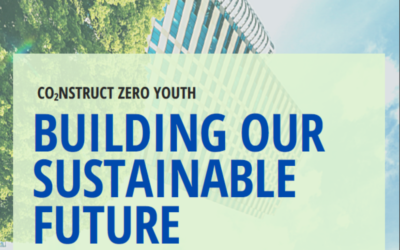Sustainability in the Finishes and Interiors Sector
FIS is committed to taking a pro-active lead, not just in supporting the UK ambition to net zero carbon by 2050, but delivering profound transformation within our supply chain on all aspects of ethical and environmental sustainability.
In this toolkit we look at some of the key actions that you can take and also some of the wider sector initiatives that can support your business in setting a sustainability strategy. The aim is to support companies in meeting the ethical and environmental aspects of sustainability considered from the three dimension of planet, people and profit across the entire construction supply chain. Definitions of sustainability do vary, but focus is on where our sector can make a positive impact in line with the UN Sustainability goals and the Net Zero agenda in the UK.
Introducing Sustainability
General Principles of sustainability
FIS 10 Golden Rules for Waste Reduction
FIS Project Reuse - Delivering circularity in fit-out
Led by a group of intrepid pioneers, FIS has taken the plunge and set up a re-use pilot storage facility in East London. This facility will help to isolate and resolve the issues that are blocking a more systemic approach to reuse of product in the fit-out world. To find out more and see how you can make material available or find re-used products, follow this link.
FIS Pre-Cycle Agreement
The FIS PreCycle agreement provides a direct link between the manufacturer and user of a construction product to ensure that at end-of-service-life, the material can be recovered, repurposed, recycled or processed in the most environmentally way by keeping the product at its highest value application and importantly avoiding landfill.
Sector Specific Activities
Flooring
Plasterboard
Ceilings
Training
FIS has partnered with the Supply Chain Sustainability School
Zero carbon resources for finishes and interiors
Free-to-access training materials, videos, webinars and resources.
FREE sustainability learning pathway “‘FIS Sustainability Awareness: Doing Business Better”.
Start your Net Zero journey with a free assessment
Working with the Supply Chain Sustainability School FIS supported the development of this new assessment is based on what the company is doing in sustainability rather than their knowledge. We would like to encourage our members to use this tool. The plan longer term will be to use the tool to map our collective journey to net zero and help members benchmark their own efforts. calculating your organisational footprint and assessing your companies capability.
More resources to help you understand sustainability in the finishes and interiors sector
Sustainability related to your activities
Sustainability related to your organisation
Additional Useful Resources
Sustainability Headlines
Public sector to mandate Carbon Reduction Plans on all projects over £5 million
In a week themed with a focus on Net Zero in the Finishes and Interiors Sector, new and stricter guidelines have been revealed to focus attention on Carbon Reduction in Central Government contracts. From 30 September 2021, contractors bidding for Central Government...
FIS and Supply Chain Sustainability School Collaborate to start Net Zero Journeys
FIS and the Supply Chain Sustainability School are collaborating to help deliver Net Zero in the finishes and interiors sector through a new virtual training portal hosted on the Supply Chain Sustainability School website. This sustainability training hub is another...
Building our Sustainable Future: Young guns take the lead with event to engage the sector
Learn how the construction industry is taking action to tackle climate change. The Construct Zero Youth ‘BUILDING OUR SUSTAINABLE FUTURE’ event invites young people to think differently about the construction industry and explore the innovative solutions it is...
Dragons’ Den Competition for Young Professionals in the Construction Industry
The Construction Leadership Council (CLC) has today announced a new Dragon’s Den competition targeted at young industry professionals, accelerating the drive to net zero. The competition aims to:• bring forward practical ideas which are almost ready for implementation...
FIS announces CO2nstructZero partnership
As part of a wider commitment to Net Zero, FIS has announced that it will become a Partner to the Construction Leadership Council (CLC) CO2nstructZero initiative. CO2nstructZero builds upon the way that the industry united last year as a single force to tackle...
New Sustainability Champion to lead change in the Finishes and Interiors Sector
As part of a wider commitment to Net Zero, FIS has appointed a Sustainability Champion. This announcement is timed to coincide with Net Zero Week of the FIS Annual Conference 2021. Flavie Lowres, will be joining the team on an initial six month contract from...
FIS Events
Path to Net Zero
The CLC Roadmap to Recovery has laid out proposals to secure the future of construction, while setting the industry on a sustainable path towards recovery. But what does this mean to projects in our sector.
Calculating your carbon footprint
As the industry is becoming more aware of the urgency to work towards net zero carbon targets, it is important that organisations start measuring their carbon footprint.






